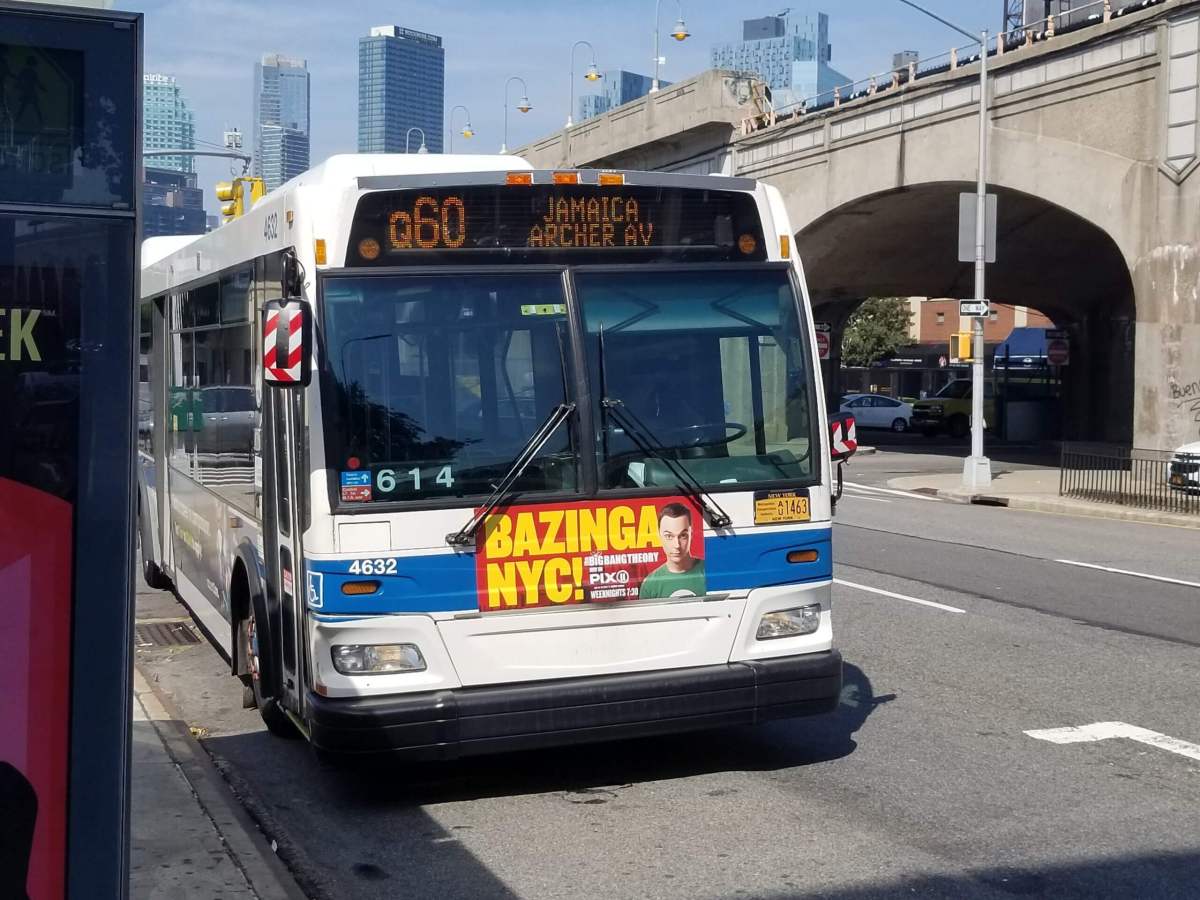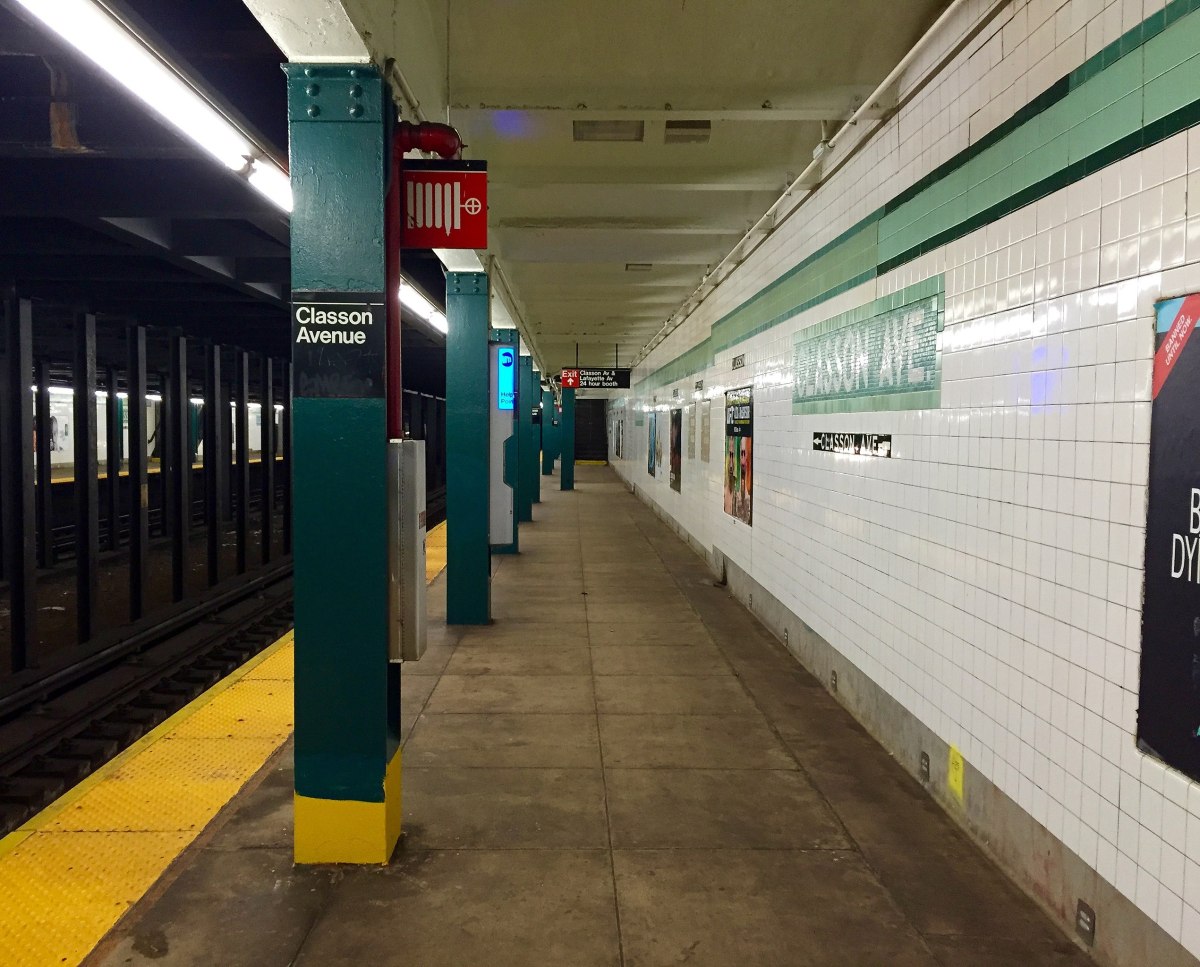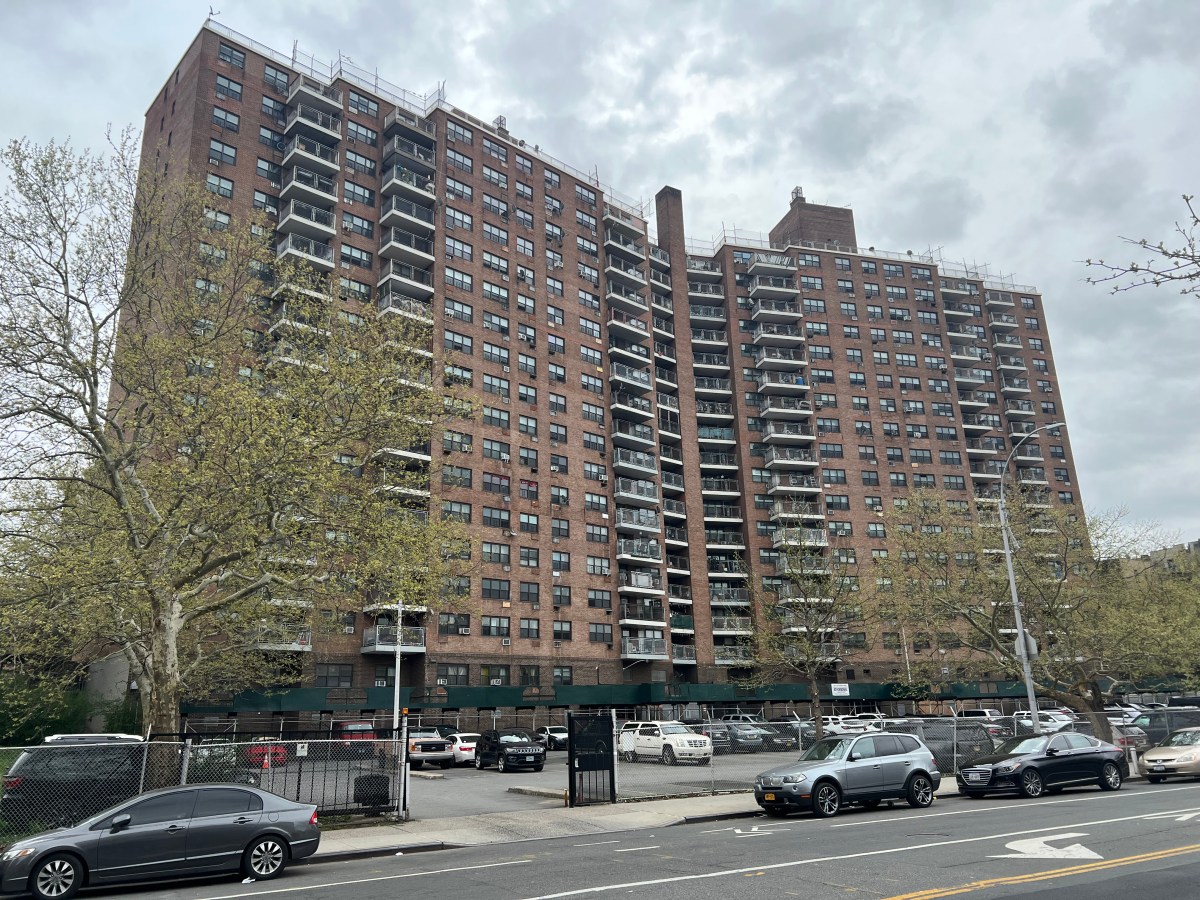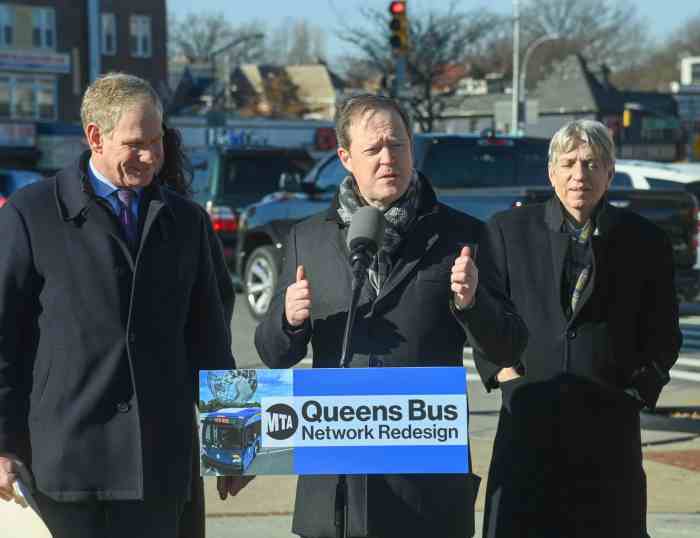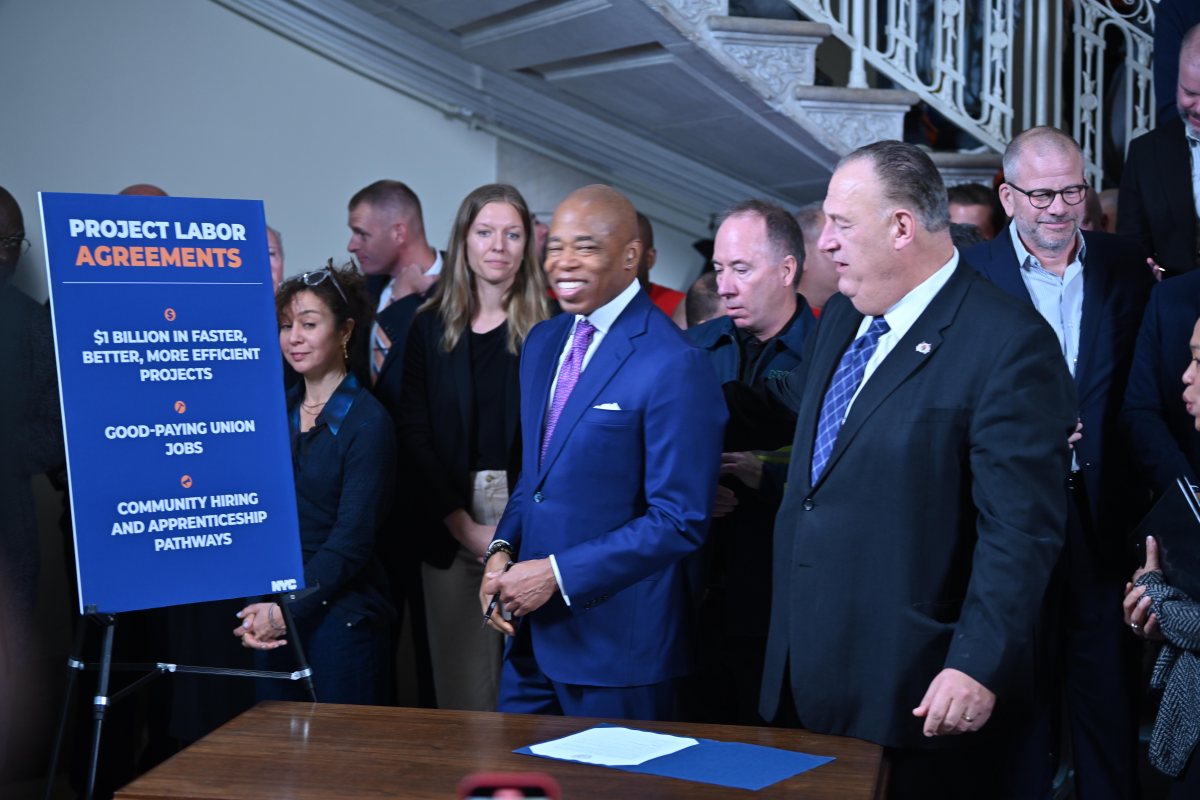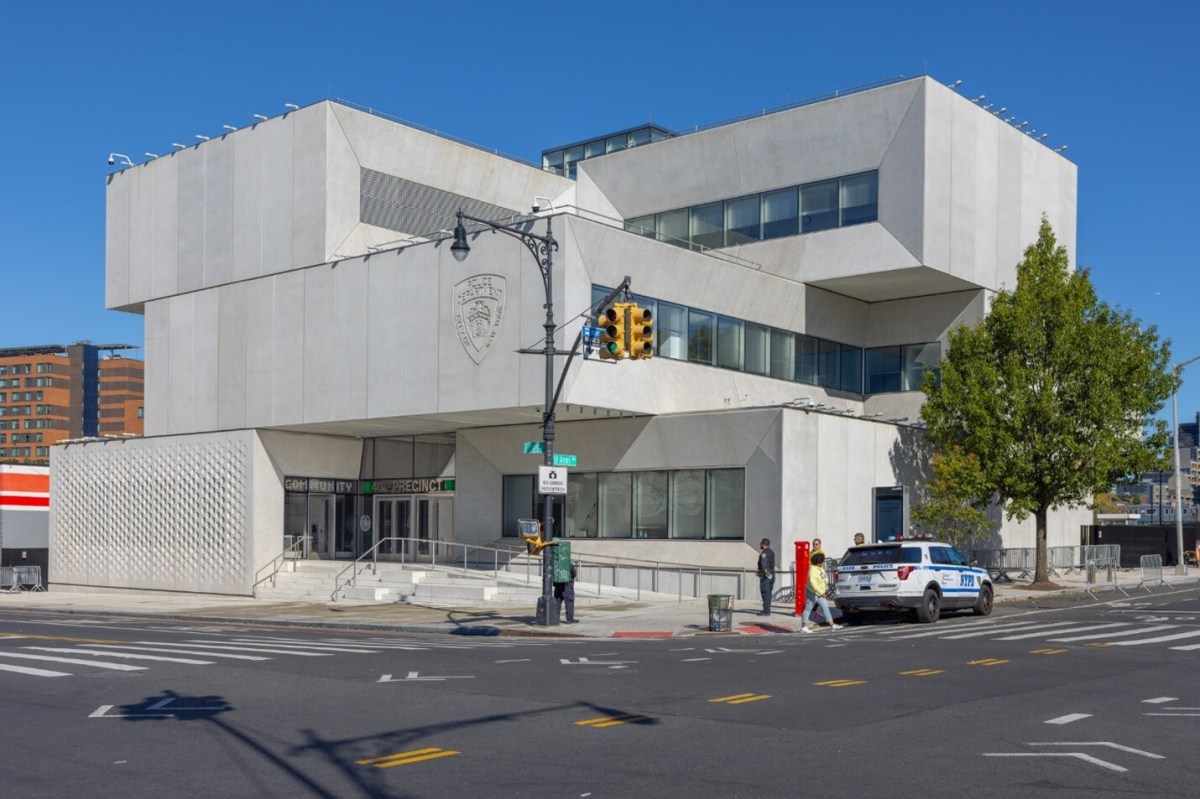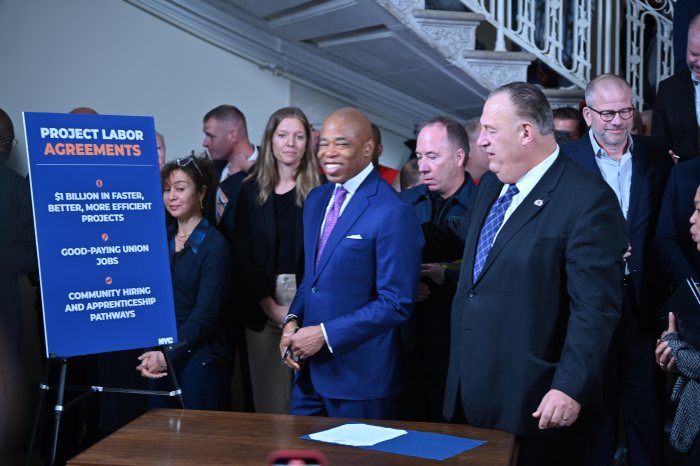amNewYork Metro, in conjunction with the MTA, present “Ask the MTA,” a column where MTA officials answer your questions about transit service in New York City. If you have a question for the MTA about subways, buses, commuter rails and more, email askthemta[@]amny.com.
Q: I want to weigh in on the Queens Bus Network Redesign. When is the next public hearing and how I can sign up to be a speaker? Nilda G., Whitestone
A: A public hearing on the Queens Bus Network Redesign will take place this Wednesday, July 24, from 5-8:30 p.m. at the Helen Marshall Cultural Center at Queens Borough Hall in Kew Gardens. It will also be livestreamed on the MTA Live YouTube channel.
Speakers – whether they’re going in-person or planning to attend remotely via Zoom or comment by phone — can register in advance on the MTA’s website, mta.info, or by calling the Public Hearing Hotline at 646-252-6777. Same-day registration will also be available that day in person until 6:30 p.m.
Additionally, written comments can be submitted through July 26 online or by mail. Address mail to: MTA Government & Community Relations, Attn: QBNR Public Hearing, 2 Broadway, D16.94, New York, NY 10004.
– Cate Contino, Director of Special Projects & Strategic Initiatives, MTA Government and Community Relations
Q: My local station was supposed to get an elevator as part of the current MTA Capital Program. Will that still happen now that congestion pricing has been paused? What about accessibility efforts overall? Steven H., Parkchester
A: Fortunately, delays to congestion pricing will not affect elevator construction at the Parkchester 6 line station. This project is part of a larger bundle of accessibility upgrades that was awarded in late 2022 and is fully funded in the current Capital Plan. Parkchester has an estimated completion date of the second quarter of 2025.
Unfortunately, the pause in $15 billion in anticipated revenue from congestion pricing means that the MTA is not currently able to award other contracts that would have brought another 23 stations into full compliance with the Americans with Disabilities Act. In the meantime, we are working with partners at the state and federal level to find ways to mitigate this budget deficit.
Under the current Capital Program, we have been awarding stations at nearly five times the pace of previous capital plans. We are hopeful to be able to continue advancing accessibility projects at this unprecedented rate.
– Jamie Torres-Springer, President, MTA Construction and Development
Q: How is the MTA preparing for hurricane season? Constance I., Dobbs Ferry
A: With experts predicting an above-normal hurricane season this year, we’re especially focused on efforts to protect the MTA system from water damage.
Over the next two weeks, we’re going to be doing our annual overnight testing of flood gates at the Hugh L. Carey and Queens Midtown Tunnels to evaluate their storm preparedness. In the event of a coastal storm, those massive doors provide the last line of defense, preventing water from infiltrating tunnels and causing the kind of extensive damage that was seen during Superstorm Sandy in 2012.
There are eight doors total, weighing 20+ tons and measuring 29 feet wide, 14 feet tall and two feet thick. They were installed back in 2017 as part of MTA’s long-term flood mitigation program.
– Catherine Sheridan, President, MTA Bridges and Tunnels



